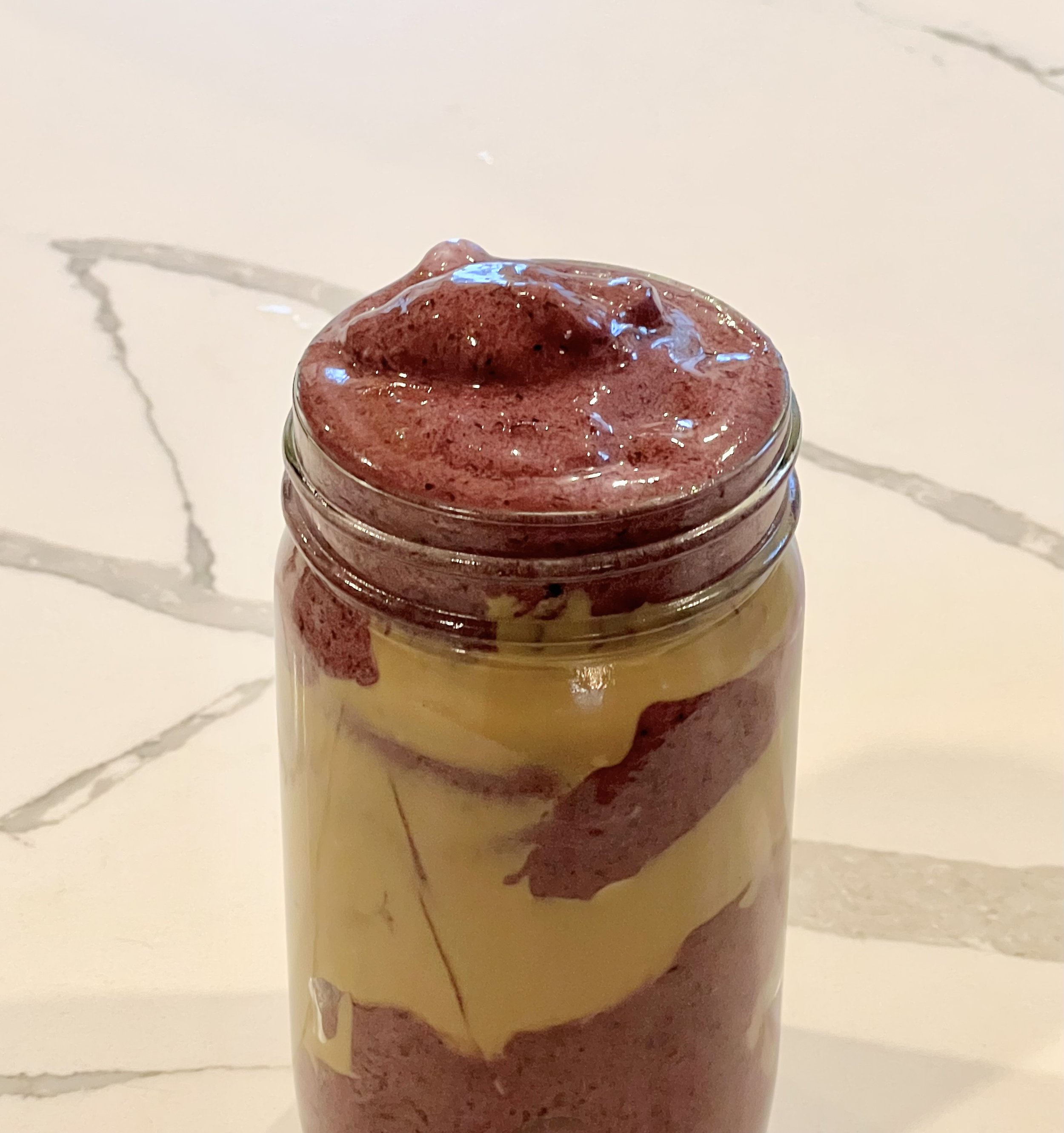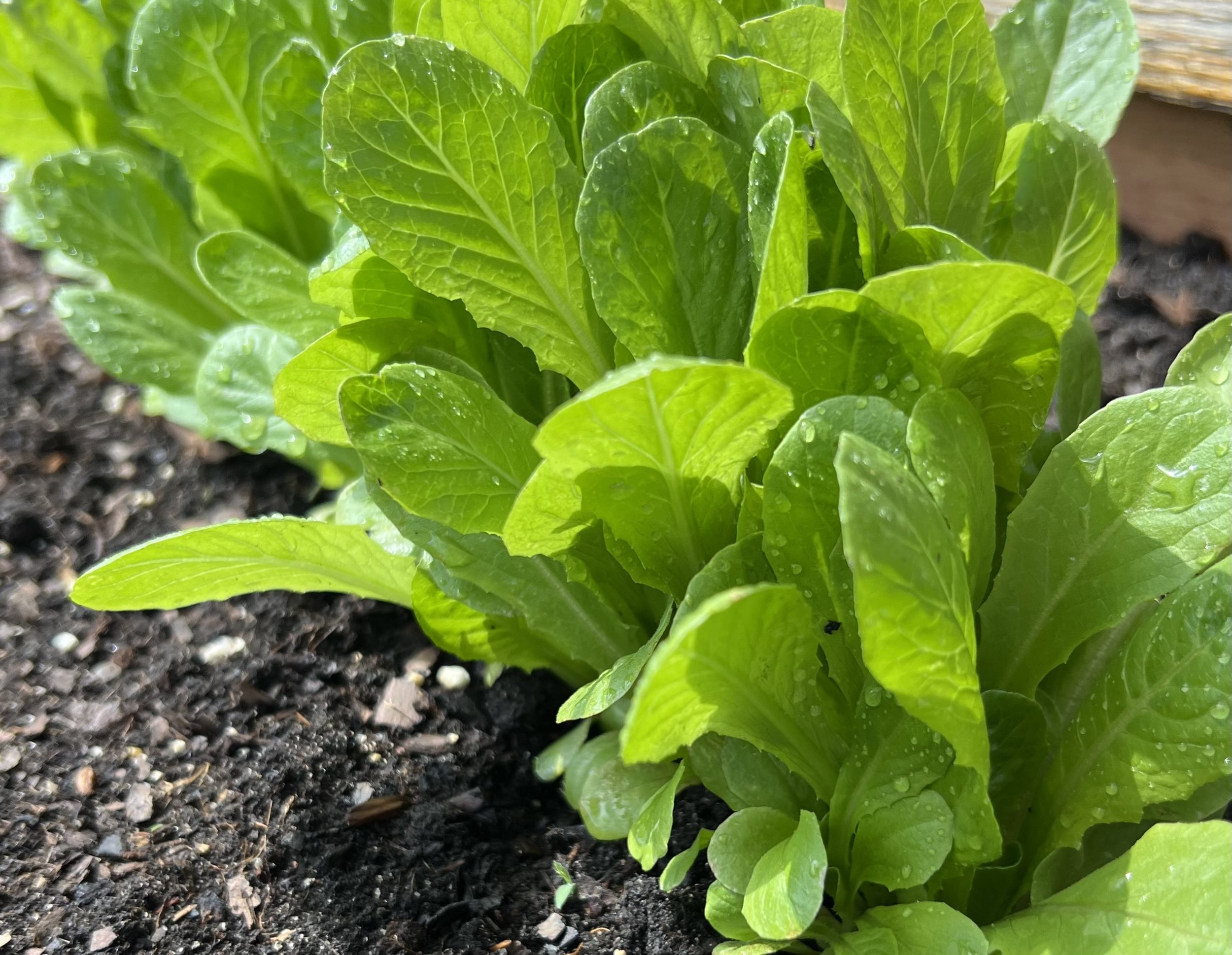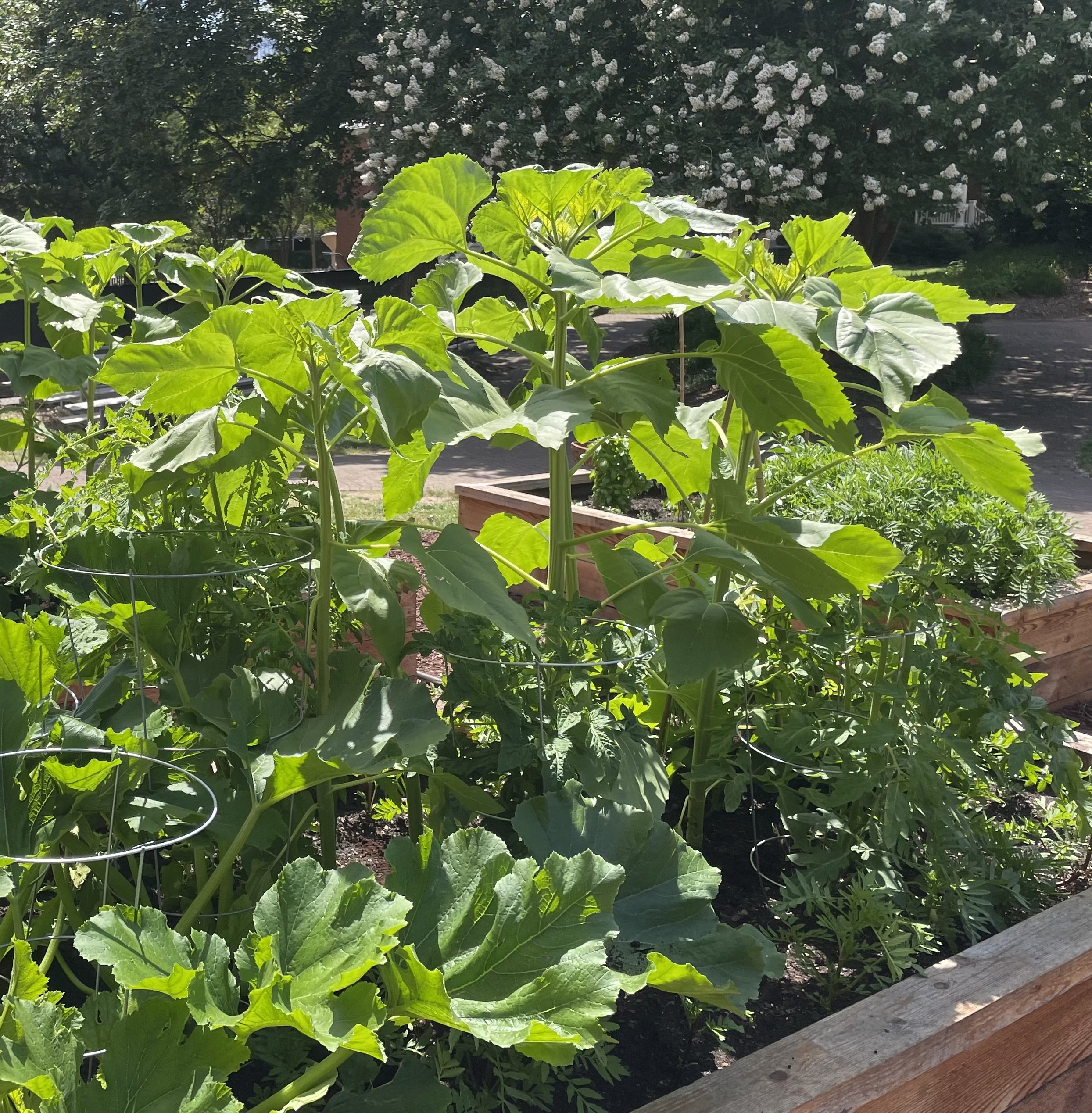wellness tips for summer
Summer is a time for being outside, warmth, energy, fun, and joy. It often brings vacation, adventure, and many new opportunities. Summer days are long, allowing the sun to shine fully on us and illuminate our vitality.
According to traditional Chinese medicine, summer is the yang (hot) season, when you may be most active and outgoing. It is associated with the element of fire — summertime carries the heat that brings us outside and fires up our hearts.
Although many students and some adults have time off of work and school to relax, summer can sometimes feel overwhelming and fast-paced. However, you can slow down this summer, using your time and holistic and hormonal health knowledge to practice self-love and optimize your overall health.
In this blog, I will list some things you can do throughout summer, wherever you may be, to bolster your overall health and find inner balance. I also included some travel tips for those seeing the world.
Eat balanced meals and stabilize your blood sugar.
Nutrition is an essential requirement. Our bodies need various nutrients to function optimally. The foods we consume influence the health of our entire body, fueling and balancing the complex hormones, systems, and functions within.
The nutrients within our food are separated into two categories:
Macronutrients are protein, carbohydrates, and fat; these nutrients supply energy in the form of calories (energy they contain). They are the building blocks of the muscles and tissues within our body.
Micronutrients are vitamins and minerals categorized as water-soluble, fat-soluble, microminerals, or trace minerals. They are essential for regulating the physiological functions of our cells and organs. Micronutrients are often found alongside macronutrients in the foods we eat.
Each of these nutrients performs a specific and vital task within our body. Therefore, we must consume all of them to survive and feel our best. By striving for balanced nutrition of minimally processed foods, you can ensure that you get the nutrients you need, wherever you may be.
Nothing has to be perfect — you can enjoy the foods you love and try new things while simultaneously consuming balanced meals that boost your health. Always remember to care for your body and its hormones by eating meals complete with:
fruits/veggies
Creating balanced meals is also crucial for maintaining healthy blood sugar. Our nutrition and lifestyle influence our blood sugar levels, which, when stable, support our overall health and help us feel our best. Blood sugar dysregulation is the cause of many unwanted short- and long-term health concerns. Luckily, there are several things you can do every day this summer and throughout the year to help stabilize your blood sugar:
Consume balanced meals: A balanced meal comprises complex carbohydrates, healthy fats, and quality protein. Studies show that consuming a combination of macronutrients (carbs + fat + protein) supports stable blood sugar levels.
Breakfast, lunch, and dinner (eating every 3-5 hours): Nourishing your body is a priority—it impacts your ability to perform every day. Going too long between meals causes blood sugar to drop. Skipping meals stresses the body, leading to an ongoing state of fight-or-flight; this produces excess cortisol and, over time, dysregulates the entire body and its hormones. Making time for a balanced breakfast, lunch, and dinner is essential (or using balanced snacks to fill in the gaps on busy days).
However, I am not preaching perfection or an all-or-nothing way of thinking. Every day may look different, especially when traveling during the summer. The one thing you should prioritize is listening to your body. If you are hungry, eat and do your best to make it a balanced meal/snack.
Rest and relax: Chill out. Mental and physical stress influence the body’s function and blood sugar regulation. Rest and relax this summer — you deserve it. Aim for 8-9 hours of quality sleep throughout the night; sleep deprivation results in a 30% decrease in insulin sensitivity: learn more about sleep here. Practicing stress reduction techniques — refer to the bottom of this blog for 30+ evidence-based holistic tips for reducing stress.
If you are home throughout the summer, work on creating simple meals that include healthy fats, complex carbohydrates, protein, and fruits and veggies. You might also try out some new hormone-healthy recipes: here are some great ones.
When you cannot cook for yourself throughout the day (vacation, etc.), use this information to choose wholesome meal components and snacks wherever you may be. Work with what you have — fuel your body. With this approach, you can enjoy your summer and try new things while getting the nutrients your body requires.
You can pack/stop for quick travel snacks to support your blood sugar. Here are some ideas:
Cottage cheese with seed crackers
Yogurt with nut butter and banana
Nuts and an apple
Hummus and Mary’s Gone Crackers
Avocado and seed crackers
Breakfast!!!
One of the most important things you should do for your body daily is eat a high-quality and balanced breakfast not too long after waking up. Eating a quality breakfast is particularly important for women and their hormones, as it regulates blood sugar, regularizes circadian rhythm, and reduces excess stress.
In one study, researchers examined the associations between eating or skipping breakfast and the quality of said breakfast on health-related quality of life (HRQOL), perceived stress, and depression in 527 adolescents. This study found that adolescents who consumed a good-quality breakfast showed better HRQOL and lower levels of anxiety and depression than those who ate a poor or very poor-quality breakfast or skipped breakfast altogether.
This research highlights the significant importance of consuming breakfast and ensuring that it is high-quality, fueling your body and nourishing your brain. A quality breakfast comprises minimally processed high-quality protein, carbohydrates, and fats. Here are some recipe ideas.
Use your time this summer to normalize making time for a good breakfast each day — your body and mind will thank you!
Be kind to your body and practice self-love.
During summer, there is an illogical societal pressure to strive for external perfection. Terms such as “hot girl summer” epitomize this concept because they imply that the focus of the next few months is mere external sublimity.
Step away from this toxic, social media-founded outlook on life.
The point of life is not to aspire for increased attractiveness; to live wholesomely is to seek to honor your body and mind and uplift the world around you. Social trends and pressures are transient — they have little ground when you acknowledge their faultiness.
This summer, rather than focusing on your external image and how others may perceive you, focus on YOU. What do you need to thrive? From now on, when you do things, do them for yourself and your overall health. Life is not a stress-filled race to superficial perfection — erase that notion and enjoy your summer WITHOUT unneeded pressures that ultimately damage your health.
Reminders
If you have to deny your body of meals and tune out hunger to maintain a specific body type, it’s not your body type. This is not sustainable or good for you.
There is no singular “optimal” body type. Healthfulness is listening to and being kind to your body. At their healthiest, everyone will look different. Embrace the natural diversity of body sizes and shapes.
Food is the fuel that keeps us alive. Our bodies require the nutrients from high-quality, natural foods to function. Denying the body of this essential requirement damages mental and physical health.
Movement is vital for overall health and wellness. Exercise is not a means to control body shape and size. When exercise solely becomes a way to change and monitor your appearance, it becomes harmful, unsustainable, and most likely damaging to your hormones.
If you dread and stress over your workouts, re-think why you are doing them. Move in ways that make you happy. Exercise to honor your body, not to condemn it.
Prioritize Sleep and Rest
Sleep is a fundamental need for all humans. Studies demonstrate our vital need for adequate hours of sleep year-round. However, during the summer, many factors may contribute to sleep difficulties. Longer daylight hours, hotter temperatures, and busy days can make finding deep sleep harder than usual.
Circadian Rhythm and Hormone Production
One significant factor in summer sleep schedules is increased daylight hours. Studies explain that more exposure to sunlight late in the day contributes to increased waking episodes during the night and decreased delta sleep (slow-wave deep sleep).
This can be attributed to the body’s circadian rhythm, our internal clock. A circadian rhythm is a periodic pattern that lasts about 24 hours, during which the light-dark cycles synchronize biological functions with the surrounding environment. Our circadian rhythm controls our sleep-wake cycle and the production, regulation, and metabolism of several crucial hormones (cortisol and melatonin).
Cortisol and melatonin have opposing rhythms. Cortisol (awake and ready) and melatonin (sleep) are the primary chemical mediators that provide the signals that reset and harmonize our inner clocks.
Ideally, when we wake up, we are exposed to the sunshine, which signals our body to produce cortisol because we are starting a new day and need to be awake and ready. As the day goes on, our cortisol levels should decrease.
Then, as the evening comes, the sun goes down, and we are exposed to less and less light, which signals our body to begin producing melatonin and readying for sleep.
However, due to longer daylight hours during the summer months, melatonin production is delayed, and the period of its secretion is shorter. This seasonal change in hormone production contributes to earlier waking times and shorter periods of sleep.
Temperature
Hotter weather in the summer can profoundly impact sleep quality and quantity. This 2012 study states that the “thermal environment is one of the most important factors that can affect human sleep.” Heat exposure increases wakefulness and reduces slow wave and rapid eye movement sleep. This effect is primarily linked to the body’s thermoregulation, a built-in safety mechanism to prevent the body from overheating. If we are too hot while sleeping, our subconscious mind will wake us up to regulate our body temperature and return to normal. When the body temperature is cool and consistent, it signals that it is safe to sleep again.
Lifestyle
Summer brings many fun opportunities and late nights. However, over time, the sleep deprivation caused by these patterns can harm overall health and future sleep quality.
Here’s what you can do to get the sleep you need this summer…
reduce screen exposure and darken your home at night: 1-2 hours before bed is essential. Blue light from screens disrupts the body’s natural circadian rhythm and production of melatonin. Opt. for dim lights and no screens about an hour before bed (a relaxing nighttime routine can help with this).
create a relaxing bedtime routine: have a screen-free and low-light bedtime routine! Try a nice bath, meditation, tea, reading a book, self-care, a warm shower, etc.
sunshine exposure in the morning: exposure to the sun’s rays in the morning helps to balance the body’s intrinsic hormone production and rhythm.
stay cool: keeping your space cool will help improve sleep quality. Set your thermostat low (around 65 F) at night, open a window, or set up a fan.
limit caffeine consumption throughout the day: caffeine has a half-life of 6 hours, so for the best quality of sleep, drink caffeine before 10 a.m. Additionally, don’t drink caffeine on an empty stomach, as it causes increases in cortisol. Caffeine AFTER breakfast and before 10 a.m. will support blood glucose levels, energy, and mood throughout the day and promote sleep come night.
consistency: get to bed at the same time most nights and wake up at the same time most days — this will help regulate and synchronize the body’s natural circadian rhythm. Getting in bed before 10 p.m. and sleeping for 8-9 hours is optimal. For women, sleep requirements may shift throughout their menstrual cycle, which is normal.
try some herbal teas: herbal teas are caffeine-free and can help the body relax before bedtime. Herbs such as valerian, chamomile, lavender, skullcap, passion flower, lemon balm, peppermint, ashwagandha, and catnip are excellent sleep supporters. Look for organic herbal teas containing these herbs to sip before bed! My favorite bedtime teas are Nighty Night Tea and Cup of Calm by Traditional Medicinals.
You can learn more about the importance of sleep and circadian rhythmicity here.
Incorporate Seasonal Foods
Seasonal eating involves utilizing produce that was recently harvested in your area. Fruits and vegetables grow and can be harvested at various times of the year. You can learn about which produce is in season near you through the USDA seasonal produce guide, the Farmers Almanac, or the Seasonal Food Guide.
Why is it important? The fresher the produce, the more nutritious and delicious it is. Studies show that the longer a vegetable fruit takes to get from the field to your table, the more nutrient loss occurs. One study found that leafy greens lost almost 50% of their original vitamin C after being transported, stored, and left on a grocery store shelf for three days. Additionally, the fresher the produce, the more flavor it retains.
Seasonal eating benefits the environment by reducing the distance between the product’s origin and your table. To stock fruits and vegetables out of season, grocery stores pay to transport them by truck, plane, or boat from different locations worldwide; this raises the product’s retail price and increases the carbon emissions used. Choosing in-season items likely lowers costs, improves the flavor and nutrient content, and supports the environment and local economy.
Shopping at farmer's markets is a great way to find local and in-season produce. Frozen produce is also an excellent option for incorporating seasonal produce because it is typically frozen at its peak and retains an optimal nutrient profile. Look for organic and in-season fruits, vegetables, and fresh herbs when possible.
Utilizing seasonal produce is beneficial to local economies and human and environmental health. Summer months bring plentiful harvests of delicious and colorful fruits, vegetables, and herbs that help promote balance within the body.
Fresh and in-season produce provides the nutrients we need to function optimally in a way that is good for us and the environment. To learn more about balanced nutrition and sustainable agriculture, click here.
Seasonal summer produce (North Carolina, according to the Seasonal Food Guide):
June:
Basil
Beets
Black Eyed Peas
Blackberries
Blueberries
Brambles
Cabbage
Chard
Cherries
Chives
Cilantro
Collard Greens
Corn
Cucumbers
Egg Plant
Fennel
Gooseberries
Green Beans
Green Onions
Ground Cherries
Kale
Leeks
Loquats
Mint
Mushrooms
Mustard Greens
Onions
Oregano
Parsley
Peaches
Peanuts
Peppers
Plums
Potatoes
Radishes
Raspberries
Rosemary
Sage
Shallots
Snap Peas
Snow Peas
Micro Greens
Strawberries
Summer Squash
Sunchokes
Sweet Potatoes
Tarragon
Thyme
Tomatillos
Tomatoes
Turnips
Watercress
Zucchini
July:
Basil
Black Eyed Peas
Blackberries
Blueberries
Brambles
Cabbage
Cantaloupe
Chard
Cherries
Chives
Cilantro
Collard Greens
Corn
Cucumbers
Egg Plant
Garlic
Gooseberries
Green Beans
Green Onions
Ground Cherries
Lavender
Leeks
Lima Beans
Melons
Mint
Nectarines
Onions
Oregano
Parsley
Peaches
Peanuts
Peppers
Plums
Potatoes
Rosemary
Sage
Shallots
Snap Peas
Snow Peas
Micro Greens
Summer Squash
Sunchokes
Sweet Potatoes
Tarragon
Thyme
Tomatillos
Tomatoes
Watercress
Watermelon
Zucchini
Sources:
Xu, X. (2001). Principles of traditional Chinese medicine: The Essential Guide to Understanding the Human Body. Ymaa Publications.
Aguero, M. V., Ponce, A. G., Moreira, M. R., & Roura, S. I. (2011). Lettuce quality loss under conditions that favor the wilting phenomenon. Postharvest Biology and Technology, 59, 124–131. https://doi.org/10.1016/j.postharvbio.2010.08.018
Ansorena, M. R., Agüero, V., Goñi, G. M., Roura, S., Ponce, A., Moreira, M. D., & Scala, K. D. I. (2012). Assessment of lettuce quality during storage at low relative humidity using Global Stability Index methodology. Ciência e Tecnologia de Alimentos, 32(2), 366–373. https://doi.org/10.1590/S0101-20612012005000043
Ferrer-Cascales R, Sánchez-SanSegundo M, Ruiz-Robledillo N, Albaladejo-Blázquez N, Laguna-Pérez A, Zaragoza-Martí A. Eat or Skip Breakfast? The Important Role of Breakfast Quality for Health-Related Quality of Life, Stress and Depression in Spanish Adolescents. Int J Environ Res Public Health. 2018 Aug 19;15(8):1781. doi: 10.3390/ijerph15081781. PMID: 30126240; PMCID: PMC6121474.
Blume C, Garbazza C, Spitschan M. Effects of light on human circadian rhythms, sleep and mood. Somnologie (Berl). 2019 Sep;23(3):147-156. doi: 10.1007/s11818-019-00215-x. Epub 2019 Aug 20. PMID: 31534436; PMCID: PMC6751071.
Wehr TA. Melatonin and seasonal rhythms. J Biol Rhythms. 1997 Dec;12(6):518-27. doi: 10.1177/074873049701200605. PMID: 9406025.
Worley SL. The Extraordinary Importance of Sleep: The Detrimental Effects of Inadequate Sleep on Health and Public Safety Drive an Explosion of Sleep Research. P T. 2018 Dec;43(12):758-763. PMID: 30559589; PMCID: PMC6281147.














